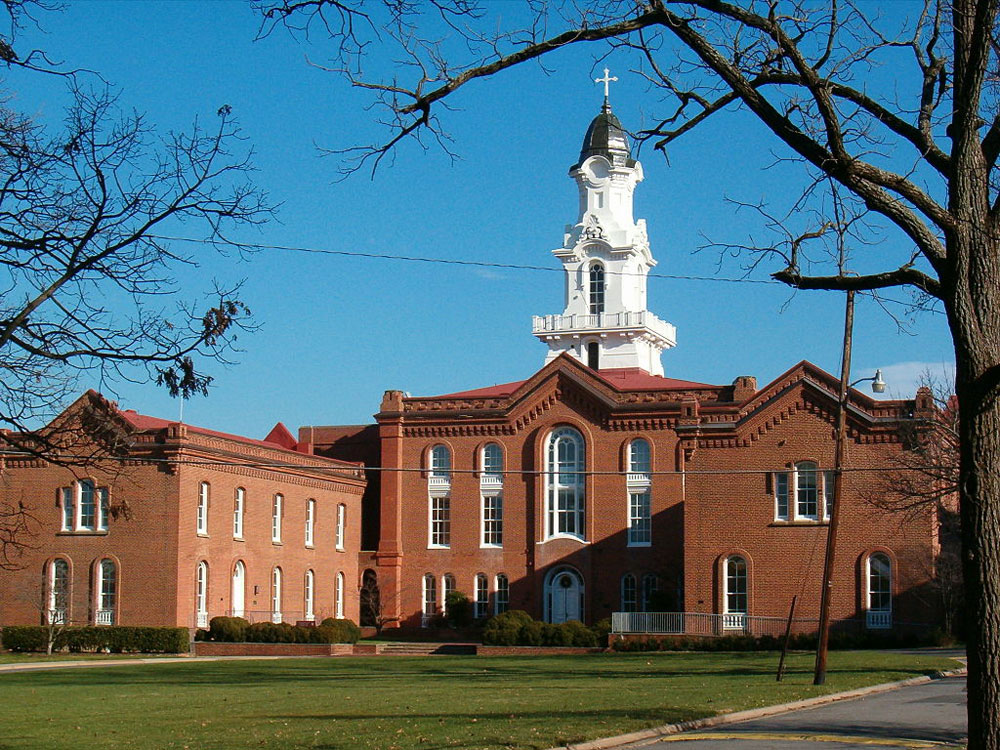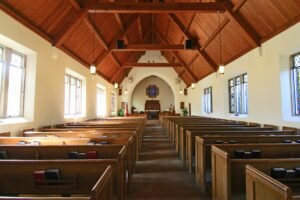
September 12, 2019; New York Times and The Root
Like a growing number of universities and religious institutions, the leadership at the Virginia Theological Seminary (VTS) recognizes their school benefitted financially from slave labor. Unlike many, VTS has decided it must take responsibility and begin to act immediately to provide reparations for the harm it did.
In a statement issued earlier this month, VTS announced they “recognize that enslaved persons worked on the campus, and that even after slavery ended, VTS participated in segregation. VTS recognizes that we must start to repair the material consequences of our sin in the past.”
By establishing a $1.7 million reparations fund, VTS has become, as noted by the New York Times, “one of the first American institutions to allocate money specifically for the descendants of the enslaved. The fund will also provide financial support for black seminarians and black worshipers who experienced discrimination on campus.”
For those who question the amount, it is worth noting that The Very Rev. Ian S. Markham, Ph.D. dean and president of VTS, described this action as only a start.
“This is the Seminary recognizing that along with repentance for past sins, there is also a need for action,” Markham says. He also stresses the need to confront the institutional reality of having been built on the backs of slaves.
Sign up for our free newsletters
Subscribe to NPQ's newsletters to have our top stories delivered directly to your inbox.
By signing up, you agree to our privacy policy and terms of use, and to receive messages from NPQ and our partners.
We need to come to terms with a past that has an ugly side, a wicked side. When you’re talking about something as heinous as slavery, there’s no amount really that can actually satisfy that sin. It’s just too enormous. But we’re going to do the hard work, recognizing that our past is full of sin and grace.
To start, the Seminary has established a committee to find the direct descendants of enslaved persons owned or rented by the Seminary in its earliest years. Beyond that, they seek to put resources toward helping build a more equitable, open community.
The seminary hopes to identify descendants of the enslaved laborers who worked on campus and seminarians who experienced discrimination at the school. Officials plan to discuss their needs and to offer financial assistance…also hope to support local churches with historical ties to the seminary and African American alumni, especially black Episcopal clergy and those working in black congregations.
Three years ago, NPQ observed that institutions nationwide were starting to consider the consequences of their histories with racism. For the larger ones, the sheer size of the debt may make action hard. Earlier this year, Georgetown University’s student body voted to support the establishment of a reparations fund to be funded by student fees. If put into action, it would raise $380,000 annually, and the monies used to directly benefit the descendants of the people who were sold to pay off debts in 1838. Georgetown’s leadership is not yet ready to approve this request, perhaps because it knows its debt may be much greater; the Times reports the request is for $1 billion “for a foundation that would finance educational, health, housing and other needs.”
By beginning to pay for the stolen labor of enslaved workers, the Seminary has gone where many have feared to go. Craig Steven Wilder, a historian at MIT who has written extensively about universities and their ties to slavery, described the importance of VTS’s actions in comments to the Times. “The conversation about institutional obligations to the descendants of the enslaved typically gets confined to a discussion of research and fact-finding,” Wilder says.
Large problems are difficult to solve, and often require those who have benefited at others’ mortal expense to give up their privilege. The struggle to redress the unresolved harm of slavery confronts us with that dilemma. This is the challenge before organizational and political leaders. What VTS has done shows one path forward. But, as we should know, those who take the first steps into a restorative environment may find themselves critiqued as the nation and its institutions begin to work—we hope—to achieve a long-belated reparation.—Martin Levine











